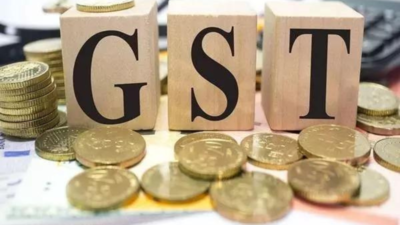ARTICLE AD BOX

Proposed changes in the Goods and Services Tax (GST) structure could temporarily push up India’s fiscal deficit, but the growth benefits are expected to outweigh the short-term setback, according to an analysis by Emkay Research cited by ANI.The report projects the fiscal deficit rising to 4.5 per cent in FY26 and 4.6 per cent in FY27 (estimated projections), marking a 0.1 and 0.2 percentage points surge, respectively. The slippage, however, is seen as temporary, with stability expected within two to three years.“The government should absorb the revenue loss through the higher deficit, as the growth accretion will cover the shortfall within 2-3 years,” the analysis noted.
Tax buoyancy and asset sales are expected to partly offset the deficit impact.Also read: PM Modi chairs key business meet; next-generation GST reforms discussedWhile the Centre has sufficient numbers to push through GST changes, state cooperation remains critical. Revenue shortfalls could strain some states, pushing them beyond their 3 per cent to 3.5 per cent fiscal deficit limits.Any restructuring must be approved by the GST Council, where the Centre holds 33 per cent voting rights and states and Union Territories share the remaining 67 per cent equally.
Decisions require 75 per cent weighted majority support, meaning at least 20 states must agree.The report stressed that India’s complex GST framework has hindered growth, and rationalisation — including a shift towards a two-tier structure — is justified despite near-term fiscal risks. Recent ratings upgrades, reflecting strong macro-financial stability, have also created favourable conditions for reform.According to projections, the Centre’s FY26 net fiscal deviation would be about 0.2 per cent of GDP, assuming expenditure remains unchanged, with lower tax revenues balanced by higher dividends and PSU divestments.The analysis further suggested consumer inflation could ease by 50–60 basis points over the next year. However, demand momentum will depend on fiscal policy choices, particularly if capital expenditure or social sector programmes face cutbacks.Despite short-term challenges, the report argued that GST rationalisation will simplify the tax regime and support long-term growth.



.png)
.png)
.png)
















 6 hours ago
3
6 hours ago
3









 English (US) ·
English (US) ·